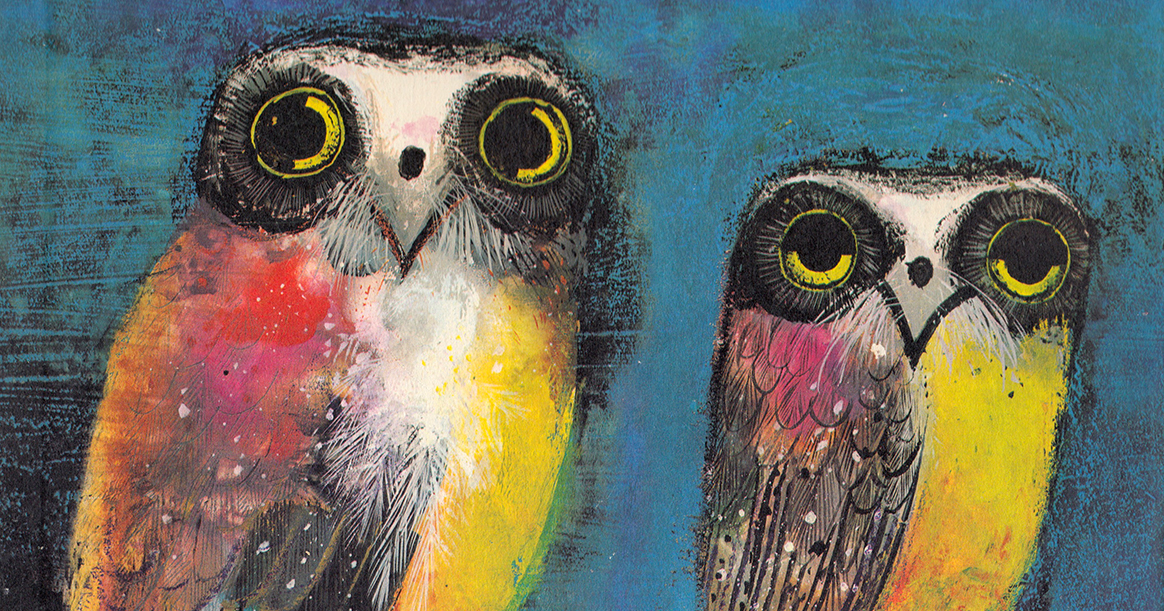| ? |
 |
|
Don't like ads? Go ad-free with TradeBriefs Premium
   
CEO Picks - The best that international journalism has to offer!
S1Russian spies are back--and more dangerous than ever - The Economist (No paywall)   IT IS UNUSUAL for spymasters to taunt their rivals openly. But last month Bill Burns, the director of the CIA, could not resist observing that the war in Ukraine had been a boon for his agency. “The undercurrent of disaffection [among Russians] is creating a once-in-a-generation recruiting opportunity for the CIA,” he wrote in Foreign Affairs. “We’re not letting it go to waste.” The remark might well have touched a nerve in Russia’s “special services”, as the country describes its intelligence agencies. Russian spies botched preparations for the war and were then expelled from Europe en masse. But evidence gathered by the Royal United Services Institute (RUSI), a think-tank in London, and published exclusively by The Economist today, shows that they are learning from their errors, adjusting their tradecraft and embarking on a new phase of political warfare against the West.
Continued here
|
S2S3S4S5It's Time to Officially End Unpaid Internships - Harvard Business Review (No paywall)   While internships have high value in the job market, research shows that 43% of internships by for-profit companies are unpaid. Not paying an intern for their work, time, and effort is not just unfair, it’s unethical and exploitative. Unpaid internships deepen the existing social divide. A survey conducted by NACE found that paid internships disproportionately go to white, male students with parents who have a college degree. The survey also revealed that unpaid interns get the same number of job offers as those without an internship. So, an unpaid internship is as good (or bad) for your career as not doing an internship at all. There is a better, more equitable solution to unpaid internships: micro-internships. Micro-internships are short-term, paid projects for college students. Unlike summer internships, they are available throughout the year. Micro-internships can help students explore opportunities beyond their college major and learn highly generalized transferable skills.
Continued here
|
S6How to Talk to Your Boss About Your Career Development - Harvard Business Review (No paywall)   Your career development isn’t just your manager or the organization’s responsibility — it starts with you. To advance in any role, you need to proactively initiate a career-planning conversation with your boss. Start by reflecting on what you want. You need to have a clear understanding of where you are right now and where you want to be in a few years. Think about the tasks you do on a daily basis as well as any projects or priorities on your plate. What do you find energizing versus draining? Which areas do you feel confident in and which do you struggle with? Think about what you want to do next. In two years, what kind of role do you see yourself in? What does success look like to you? Request for a meeting with your manager. Don’t fold the career conversation into your weekly one-on-one or your performance review. This meeting should specifically be focused on discussing career growth. During the meeting, clearly articulate the insights from your self-reflection time. Recap your achievements and highlight how they have contributed to the success of your team or company. This will not only demonstrate your value, it will provide a foundation for the conversation around your growth. After the meeting, draft a forward-looking plan that outlines next steps, including any new skills you need to acquire, any projects you’ve agreed to take on, and any important stakeholders you want to begin building relationships with. Use SMART (Specific, Measurable, Achievable, Relevant, Time-bound) goals so you can monitor your progress over time. Once you’ve outlined your goals and milestones, set up some time to review your plan with your manager.
Continued here
| ? |
 |
|
| ? |
 |
|
|
|
S7Business in Russia: Why some firms haven't left   When the first airstrikes fell on Ukraine in February 2022, corporate executives with operations or holdings in Russia were forced to pick a side. This decision had significant implications. Russia remains a major business market, with a population of 145 million; its 2022 GDP was a staggering $2.24tn (£1.81tn), right behind France. Fleeing companies would leave a lot of revenue on the table.
Yet amid a gruelling war, with tens of thousands of civilian casualties and widespread international condemnation of Russia, companies risked severe reputational damage by staying put. Plus, a mix of international pressure, sanctions and risks of Russian government interference offered strong reasons for companies to leave when the conflict began.
Continued here
|
S8The executive hubris driving five-day in-office mandates   In January, United Parcel Service CEO Carol Tomé announced the international logistics company was cutting 12,000 of its 85,000 management jobs. Workers who weren't axed would be expected in the office five days a week starting March. For the corporate staffers who can perform some or all their duties from home, the mandate came as an ice-water bath.
For employees like these who spend most of their days in front of a computer, workplace experts insist remote and hybrid work cannot easily be stuffed back into the bottle. "It's become so much of a mainstay now," says Colleen Flaherty Manchester, professor in the work and organizations department at the University of Minnesota's Carlson School of Management, US. We can't go backwards, she says.
Continued here
|
S9Are Jains the original vegans?   Although the term "vegan" was coined nearly 80 years ago by the British animal rights advocate Donald Watson, it is only in the last couple of decades that veganism (and Veganuary, the month long challenge to eat solely plant-based food) has really come into its own as an influential lifestyle trend. However, in many Eastern cultures, the practice of shunning meat as an act of kindness towards animals is ancient, going back more than two millennia.
In particular, Jainism, the Indian faith that originated in north India sometime between 5th-7th Century BCE, predating even Buddhism, comes closest to the modern-day vegan principles of avoiding animal products. "Non-violence or ahimsa is the basic principle of life for all Jains," explained Kusum Jain, retired professor of philosophy at the University of Rajasthan. Professor Jain, who has done extensive research as well as advised doctorate students on this subject, added, "This includes all living things – not just human beings, but also animals, insects and sometimes plants, even those living in water or under the earth. For Jains, hurting or harming any living being in any sense is violence."
Continued here
|
S10The Chosen: The Christian-funded hit about Jesus taking the US by storm   It's one of the most successful crowdfunded entertainment projects ever, with its makers claiming that during four seasons of the series, viewer support raised nearly $100m in production expenses. But the chances are if you're not a US Christian, you might never have heard of The Chosen, the first multi-season series about Jesus of Nazareth, told through the eyes of his disciples and followers, as well as his opponents – as initially it was only available on its own platform, or through other Christian outlets.
More like this:- Band of Brothers is the last great 'uncool' TV show- How Gone Girl impacted a shocking kidnapping case- The female drug barons of Latin America
Continued here
|
S11Oscars 2024: The real reason Barbie's Greta Gerwig and Margot Robbie were snubbed by the Oscars   Being based on a doll really hurt Barbie at the Oscars. Although the film was nominated for best picture, Greta Gerwig was snubbed as director and Margot Robbie left out of the best actress category, omissions that caused a flood of outrage on the internet and from their colleagues. The Associated Press called Gerwig's snub "one of the biggest shocks in recent memory". Some fans took it out on Ken. As USA Today pointed out, quoting a user on X, Ryan Gosling being nominated for supporting actor while Gerwig and Robbie were left out "kind of proves the point of the movie", that the patriarchy is still with us. Gosling, Ken himself, said in a statement: "There is no Barbie movie without Greta Gerwig and Margot Robbie, the two people most responsible for this history-making, globally-celebrated film".
More like this:- Gerwig's 'bold, inventive' Barbie breaks the mould- How Barbie subverts our expectations about pink- 'I'm just Ken': How toxic masculinity dominated cinema
Continued here
|
S12In History: Nina Simone on how racial injustice fuelled her songs   "I must say that Martin Luther King didn't win too much with his non-violence," Nina Simone told the BBC's David Upshal on the Late Show in 1991. The singer was herself a prominent figure in the 1960s civil rights movement, but was frustrated by the cautious route of civil disobedience and peaceful protests championed by Martin Luther King Jr. Infuriated by the slow pace of change and anguished by the violence and brutal oppression she saw happening to black Americans daily, she felt a more militant approach was needed if racial equality was ever going to be achieved. In this, she felt more in tune with more radical tactics endorsed by civil rights leader Malcolm X and Black Power movements.
"[Martin Luther King] is remembered more than Malcolm X, and Malcolm X never had a chance to get the kind of popularity that Martin Luther King got. But I was never non-violent, never. I thought we should get our rights by any means necessary."
Continued here
|
S13Why True Detective: Night Country was better for its unsolved mysteries   Last night saw the finale of one of the most talked-about TV dramas of the year so far, the latest instalment in the True Detective franchise, Night Country. But as the Alaska-set police procedural came to its killer climax, it left some of its mysteries to linger tantalisingly – something guaranteed to frustrate some fans, but which was the marker of a bold series that had confidence in its own semi-rational, semi-mystical storytelling.
Certainly, the fourth season of HBO's crime anthology undoubtedly represented a return to form after the turgid second season and forgettable third. While never quite hitting the heights of the stellar debut run, it worked brilliantly as its negative image – a "dark mirror", as showrunner Issa López has called it. Rather than two mismatched males investigating deaths in America's sun-scorched Deep South, López gave us two mismatched females investigating deaths in the frozen far North.
Continued here
|
S14 How Tech Fails Late-Career Workers   The winter 2024 issue features a special report on sustainability, and provides insights on developing leadership skills, recognizing and addressing caste discrimination, and engaging in strategic planning and execution.
The winter 2024 issue features a special report on sustainability, and provides insights on developing leadership skills, recognizing and addressing caste discrimination, and engaging in strategic planning and execution.
Few businesses have implemented strategies to build an age-inclusive, multigenerational workforce. Even fewer seem to be aware of the important role that workplace technologies can play in driving the performance outcomes for workers of different ages. But as labor force demographics skew older as more people work longer, business success and productivity will be increasingly tied to the well-being and job performance of workers ages 60 and older, according to the Organization for Economic Cooperation and Development.1
Continued here
|
S15Denis Villeneuve Explains 'Dune 2's Most Fundamental Change From the Book  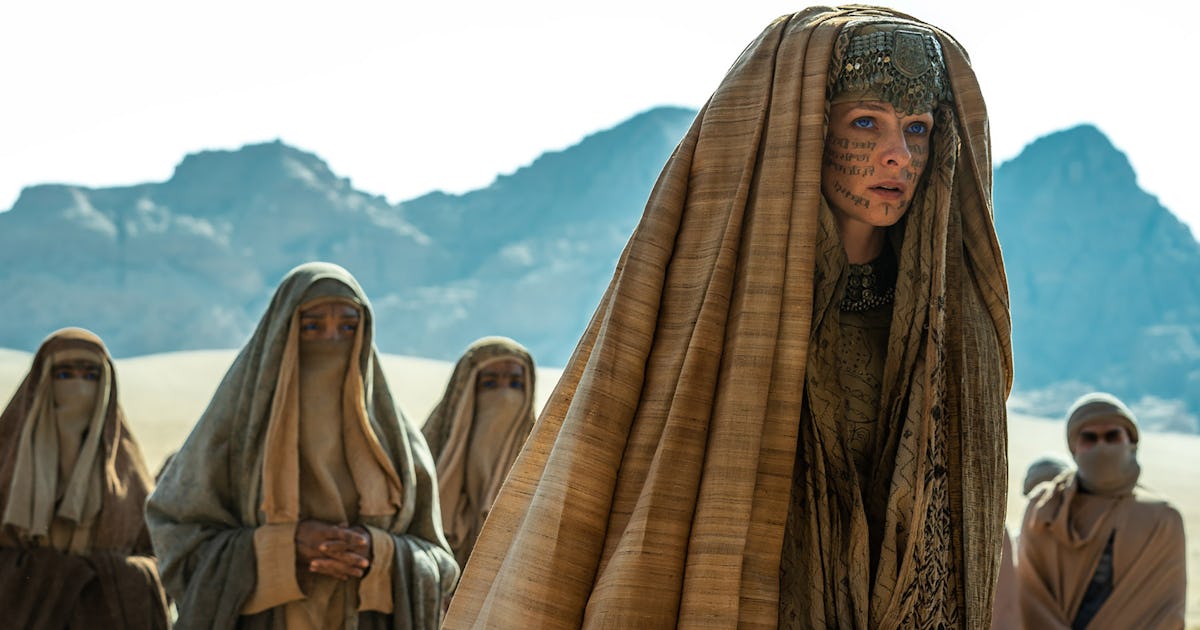 The main character of Dune might not really be Paul Atreides. In the first book, Lady Jessica emerges as a second protagonist, a counter to Paul’s arc. Now, as Dune: Part Two adapts the rest of that book, audiences will see a greater emphasis on Jessica and the superhuman religious sisterhood of the Bene Gesserit writ large. Their already pivotal role is even more pronounced in Dune: Part Two, and there’s a clear reason why: Director Denis Villeneuve was determined to preserve his favorite part of Dune, even if that meant changing some details of the story.
During a 2023 interview at Brazil’s CCXP convention, Denis Villeneuve pointed out that he de-emphasized the role of the Spacing Guild and human-computer Mentats because he wanted to leave room for the Bene Gesserit’s role to be sufficiently impactful. “In my adaptation, the Mentat suffered... but it’s a declaration of love to the Bene Gesserit,” Villeneuve said.
Continued here
|
S16It's Time for Apple To Give iOS 18 a Design Refresh   The floating, see-through windows of visionOS are just a small sliver of the ways Apple’s new software direction could and should influence the iPhone.
iOS, Apple’s operating system for the iPhone, needs a shakeup badly. The mobile software has fundamentally worked more or less the same way since Steve Jobs introduced the iPhone in 2007 (when it was called iPhone OS) and looked the same since iOS 7 because when you’ve sold billions of devices with an easy-to-use touchscreen interface, the last thing you want to do is blow it all up and force everyone to relearn how to use their beloved pocket slabs.
Continued here
|
S17TikTok's Favorite Camera for Taking Film-Like Photos Is Getting a Huge Upgrade   Four years after Fujifilm released the X100V camera to critical acclaim, the camera maker is back with a successor called the X100VI (pronounced six).
Fujifilm’s X100 series has always bucked the trend of other mirrorless digital cameras. Instead of supporting interchangeable lenses like Sony, Canon, Nikon, or even its other cameras, the appeal of the X100 series has always boiled down to a winning formula: a beautiful retro-inspired digital camera with a fast fixed lens, a unique hybrid electronic and optical viewfinder, the most satisfying tactile dials and buttons for adjusting exposure settings, and built-in “film simulations” that reproduce the look of analog film.
Continued here
|
S18Netflix Just Quietly Added the Best Martial Arts Epic You Haven't Seen   Max never truly knew what to do with Warrior, but the series will find a new audience on a rival streamer.
The streaming era is not without its foibles, but there’s something to be said for the way Netflix has been picking up the slack where it can. The streamer is by no means perfect — in many ways, it still perpetuates the industry’s worst habits — but what was once the progenitor of haphazard franchise building has become a savior of projects that would otherwise be lost to the whims of other platforms.
Continued here
|
S19Xbox Game Pass Just Quietly Added The Most Thrilling Action RPG of the Decade  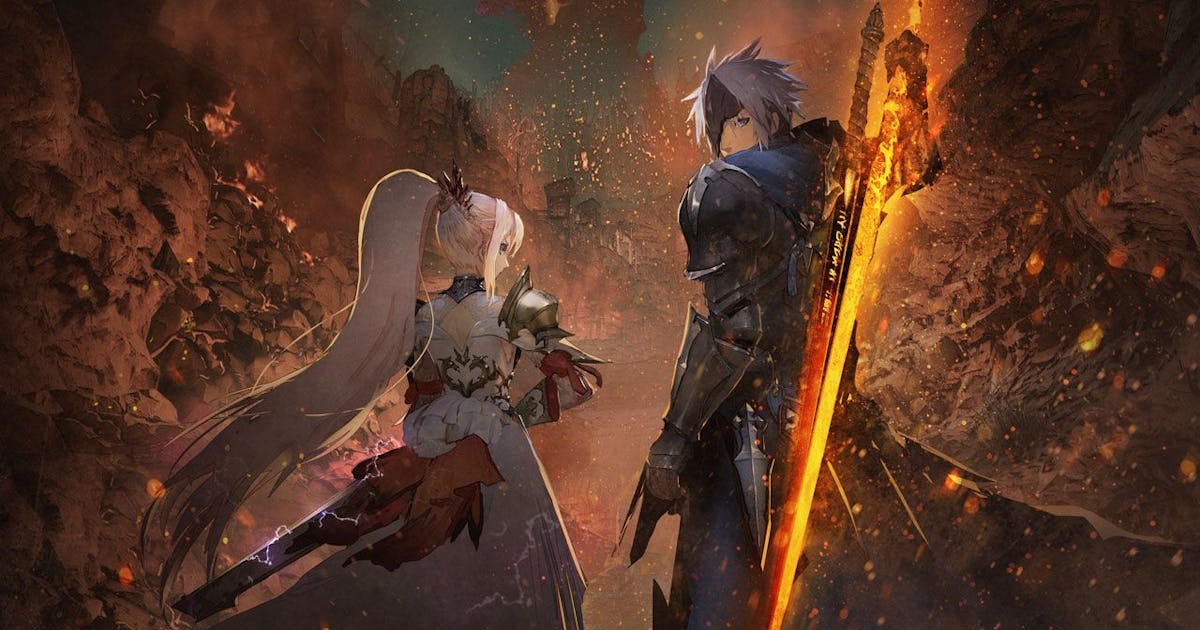 The Tales game series has always been a bit of an odd duck, eschewing the turn-based battles usually found in party-based RPGs in favor of a real-time 2D system. When the series eventually moved into 3D, it could have easily lost what makes it special, but as 2021’s Tales of Arise shows, the series is just as capable of breaking the mold of 3D action RPGs as it was their 2D counterparts. Now, Tales of Arise is available on both PlayStation Plus and Xbox Game Pass, making it the perfect game to play while you wait for the biggest RPG of the year.
Tales of Arise takes place on the world of Dahna, which was invaded by the technologically advanced people of Rena centuries earlier. The Renans enslaved the Dahnans, harvesting not only the products of their labor but also the “astral energy” released when they pass away.
Continued here
|
S20S21S22S23Zombie deer disease is spreading and scientists are concerned that it could jump to humans  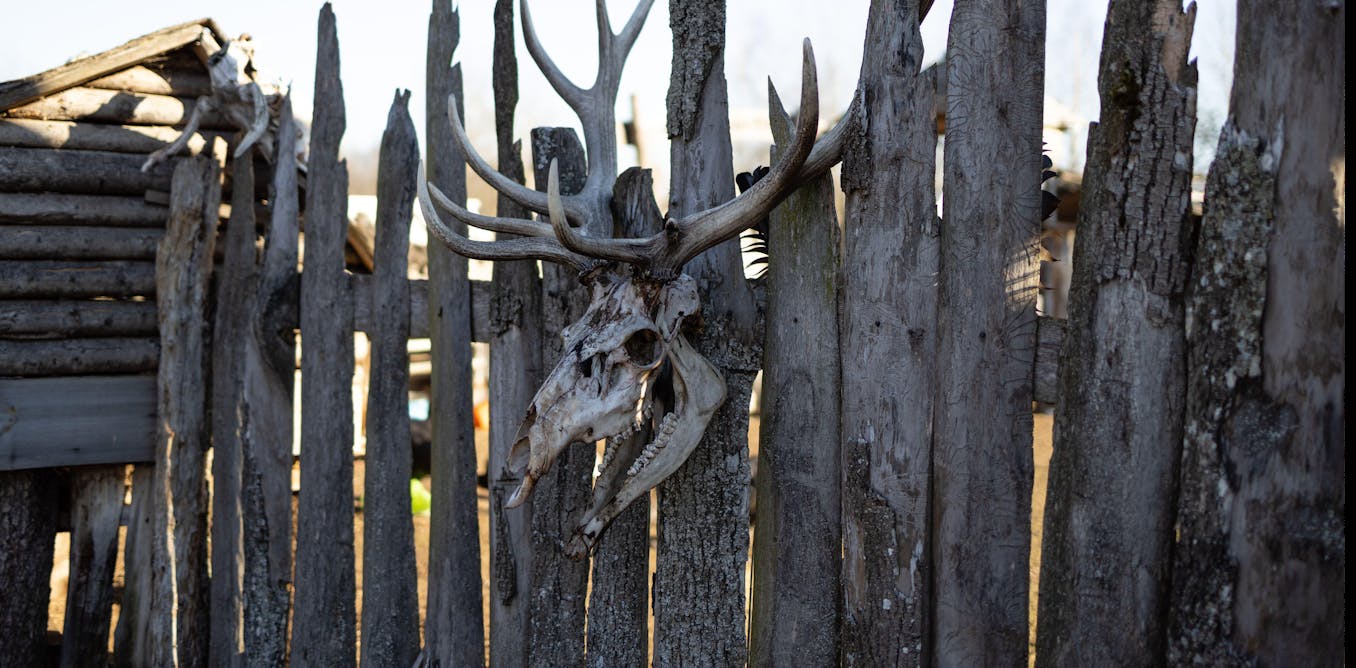 In the tranquil expanses of North America’s woodlands and grasslands, a silent but concerning phenomenon is unfolding: chronic wasting disease (CWD). The condition, often dubbed “zombie deer disease”, is stealthily spreading among deer populations, sparking concerns among scientists, conservationists and the public alike.
This neurological affliction, characterised by myriad symptoms, such as drooling, lethargy, stumbling and a vacant gaze, has now been detected in over 800 samples of deer, elk and moose in Wyoming alone, highlighting the scale and urgency of the issue.
Continued here
|
S24Sudan Armed Forces are on a path to self-destruction - risking state collapse   It is now 10 months since the outbreak of civil war in Sudan in April 2023, pitting the Sudan Armed Forces against the Rapid Support Forces, a powerful paramilitary group. The war, which erupted after relations between the two wings of Sudan’s security apparatus broke down, rapidly spread beyond the capital, Khartoum.
More recently, the Sudan Armed Forces have suffered numerous setbacks at the hands of the Rapid Support Forces. For months, army units have struggled to break their grip on much of the capital. The Rapid Support Forces and their allied militias have overrun most of Darfur and swathes of South Kordofan in western Sudan.
Continued here
|
S25What are Sabaki languages? How people formed ethnic groups along the coast of east Africa   A new book called Ethnicity, Identity and Conceptualizing Community in Indian Ocean East Africa tracks the history of the coastal communities of east Africa and how the Sabaki family of Bantu languages was formed, shaped in part by the sea and the arrival of visitors from other shores and within the continent. We asked historian Daren Ray to tell us more about his book for International Mother Language Day.
Sabaki languages are a grouping of Bantu languages spoken near the east African coast. The Sabaki language family includes Kiswahili, Mijikenda, Pokomo, Elwana and Comorian. Except for Comorian, which is the language of the Comoros Islands, each of these languages is spoken in Kenya. Kiswahili has a broader reach beyond Kenya to Tanzania, Uganda and the Democratic Republic of Congo, as well as worldwide.
Continued here
|
S26Nervous Conditions: on translating one of Zimbabwe's most famous novels into Shona  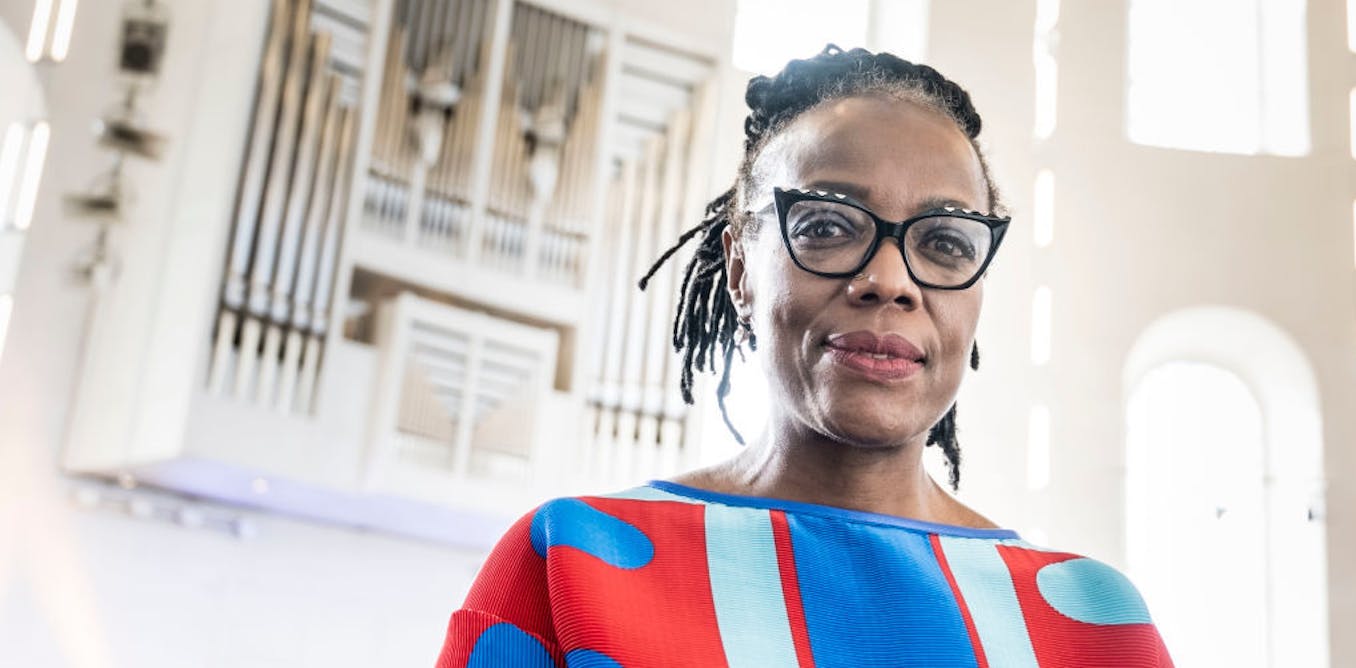 The publishing journey of Zimbabwean writer and film-maker Tsitsi Dangarembga’s Nervous Conditions wasn’t easy. Yet the novel is today considered by many as one of Africa’s 100 best books of the 20th century and is studied at universities around the world.
When she submitted the manuscript to publishing houses in Zimbabwe in the early 1980s, they all turned it down. Dangarembga felt at the time that it was “very difficult for men to accept the things that women write and want to write about: and the men (were) the publishers”. It was eventually published to critical acclaim in 1988 by The Women’s Press in London. This made Dangarembga the first black Zimbabwean woman to publish a novel in English.
Continued here
|
S27S28S29S30S31S32S33Jo Brand translated my science. I'm certain that comedy can connect people to climate change   A new comedy project pairing leading comedians with climate scientists presents a novel way to communicate the climate crisis.
“If people like me have to get involved, you know we are in deep shit,” says Jo Brand, renowned British comedian and The Great British Bake Off host. Why? Because she has joined the ranks of other notable comedians such as Nish Kumar, Kiri Pritchard-McLean, and Jonathan Pie in Climate Science Translated, a project that translates complex climate science into accessible and funny content to spur millions of people into action.
Continued here
|
S34From bridge to chess, why men outperform women at 'mindsports' - and what to do about it   Why do men strongly outperform women at “mindsports” such as chess and bridge? Mindsports mainly use the brain and require skills such as memory, critical thinking, problem solving, strategic planning, mental discipline and judgment. Without physical differences in strength, how do we explain why the top level of such games tends to be dominated by men?
A defining characteristic of bridge, which I study, is that it is always played in partnership. Each game consists of four players divided into two pairs who compete against each other to win tricks. Major bridge events have open and women’s categories, often held concurrently, with very few women playing in the open.
Continued here
|
S35How modern vendettas compare with blood vengeance in the age of King David   The English language has borrowed an Italian word, vendetta, to refer to a family blood-feud. Thanks in part to Hollywood’s long fascination with the mafia, family-based retributive violence continues to be strongly associated in western culture with parts of Italy and the Italian-American diaspora.
Given that western religions originated in the Middle East and are still prevalent there, and given the dependence of Judaism, Christianity and even Islam on the Hebrew Bible, it is important to understand how the Bible conceptualises blood vengeance.
Continued here
|
S36S37Spitting Image at 40: the story of the show is surprisingly influenced by Thatcher   Spitting Image, first broadcast in February 1984, is famed as an iconoclastic satire of 1980s political and popular culture. Its grotesque puppet caricatures became so well known that they could cement a person’s image in public consciousness: Margaret Thatcher as a domineering bully, Sarah Ferguson a snorting Sloane ranger, a grey-skinned John Major joylessly chomping a plate of peas.
Thatcher may have provided the show with its star turn, but her government’s policies were also influential in bringing the programme to air, as well as its eventual demise. The story of Spitting Image is a surprisingly – and accidentally – Thatcherite one.
Continued here
|
S38Potassium in our soil is running low, threatening global food security - new study proposes a way out   Soils around the world are running low on potassium, a key nutrient needed for plants to grow. This ultimately means we may not be able to grow enough food for everyone.
Potassium is required for plant growth alongside nitrogen and phosphorus (known as kalium in latin, potassium is the K in NPK fertilisers). While nitrogen and phosphorus sustainability issues are widely known, potassium remains in the shadows. Yet around 20% of agricultural soils worldwide grapple with potassium deficiency, especially in east Asia, south-east Asia, Latin America and sub-Saharan Africa.
Continued here
|
S39Gen Z boys' attitudes to feminism are more nuanced than negative   Young men are more likely than older men to think that feminism has done more harm than good, according to a new survey, suggesting a backward step in attitudes to gender equality. Young women aged 16-29 are also slightly more likely than women aged 30-59 to say that feminism has done more harm than good.
The survey, conducted by King’s College London and Ipsos, also found a growing divergence in attitudes towards feminism, masculinity and gender equality between young men and young women.
Continued here
|
S40
 |
TradeBriefs Publications are read by over 10,00,000 Industry Executives
About Us | Advertise Privacy Policy Unsubscribe (one-click)
You are receiving this mail because of your subscription with TradeBriefs.
Our mailing address is GF 25/39, West Patel Nagar, New Delhi 110008, India
|





































































































